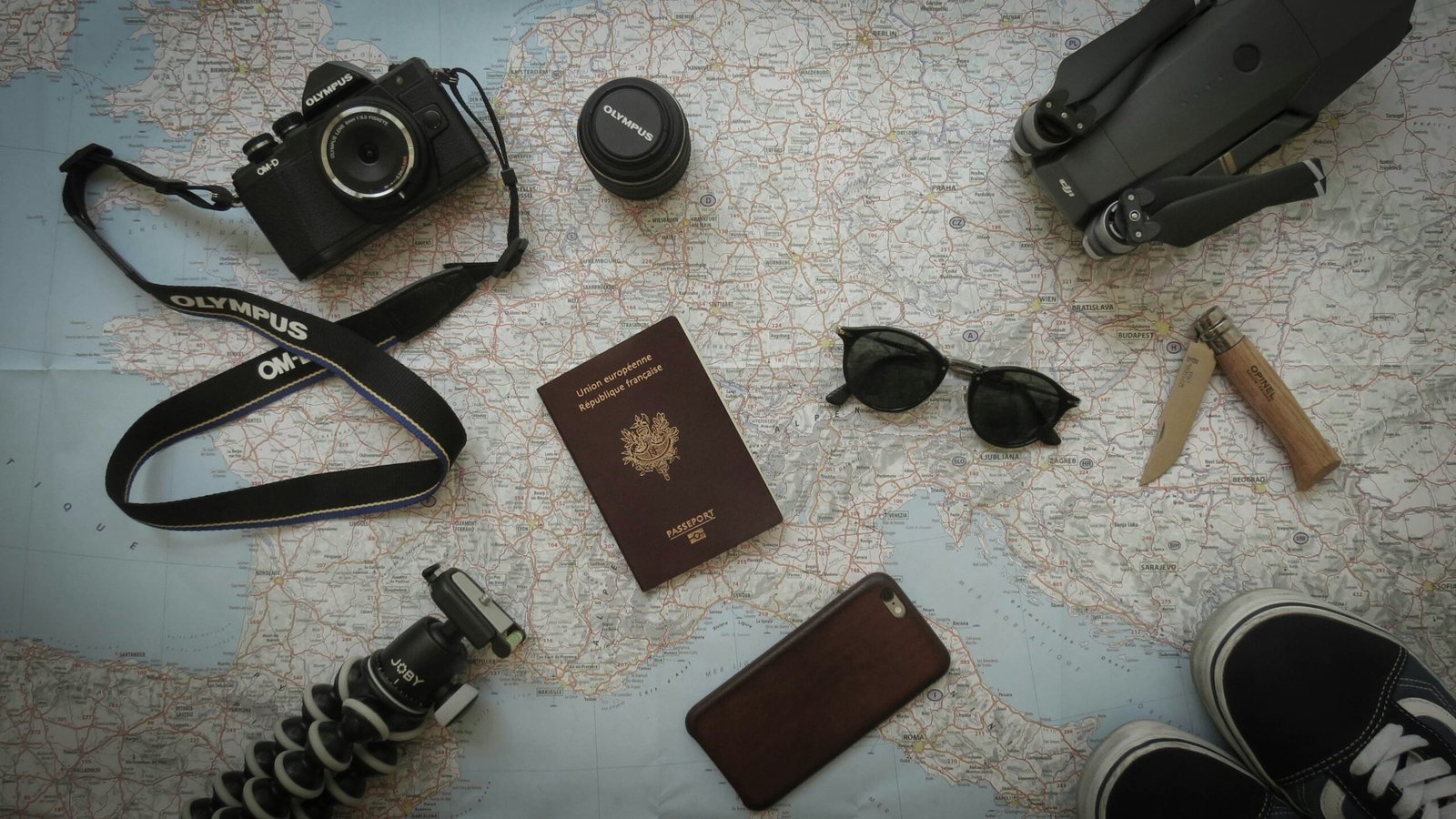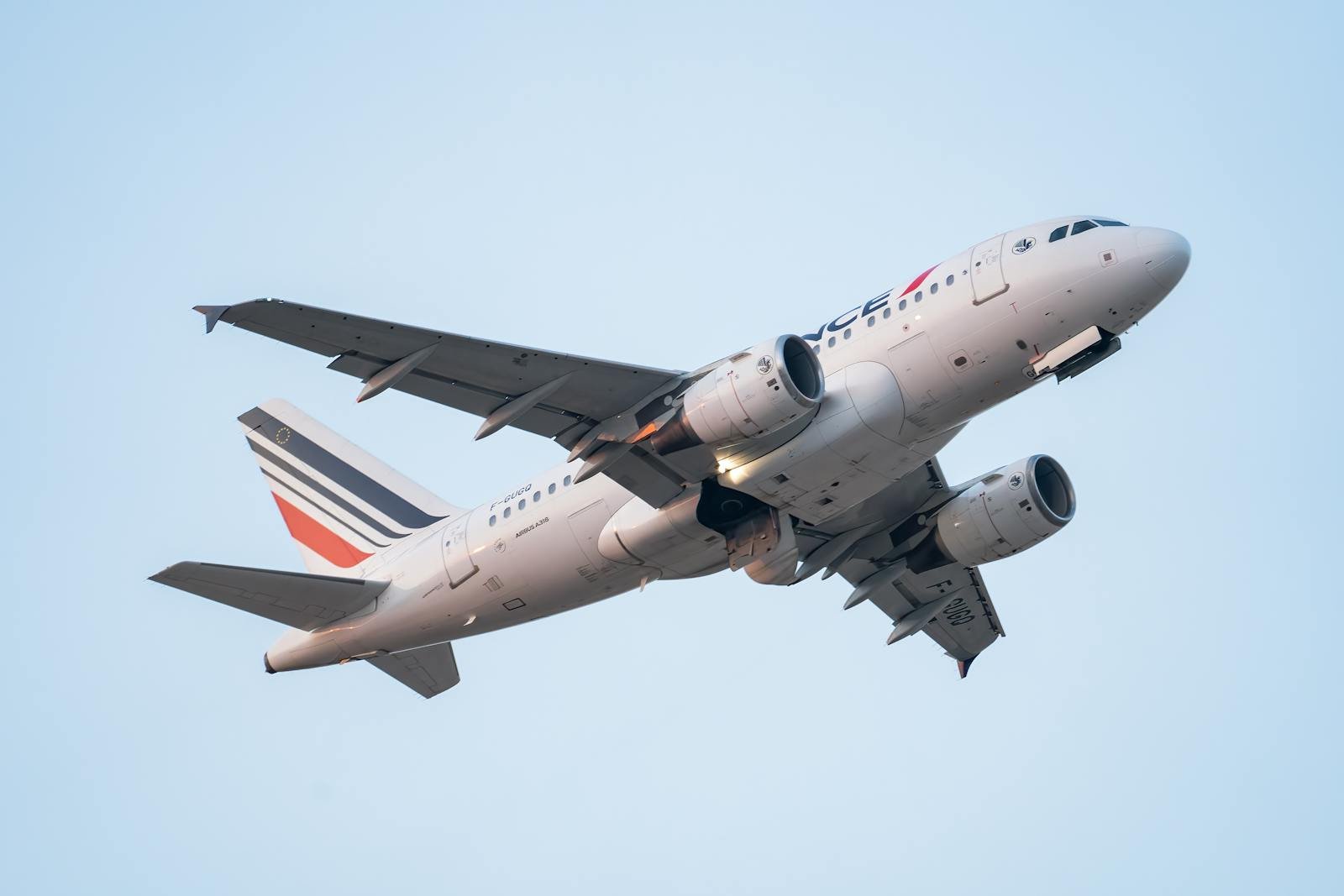
Traveling is often an exhilarating experience, filled with opportunities for exploration and discovery. However, it is essential to recognize that adventure comes hand-in-hand with inherent risks and challenges. Safety while traveling should always be a priority, especially as travelers encounter unfamiliar environments, cultures, and situations. Understanding these potential risks can significantly enhance one’s travel experience and provide peace of mind.
One of the most common risks faced by travelers is theft. Whether in bustling cities or remote areas, incidents of pickpocketing and other forms of theft can occur when least expected. Therefore, it is crucial to remain vigilant, secure personal belongings, and avoid displaying valuables openly. Furthermore, understanding the local customs and knowing which areas are safe can help mitigate the risk associated with theft.
Health issues also present a significant concern for travelers. Different regions may expose individuals to varying health risks, ranging from foodborne illnesses to infectious diseases. Travelers must therefore prioritize their health by researching necessary vaccinations and practicing good hygiene. Additionally, having access to medical facilities and knowing the procedures for obtaining medical care while abroad can be vital in an emergency.
Furthermore, unfamiliar environments can pose navigational challenges. Travelers may find themselves disoriented due to language barriers, cultural differences, or unfamiliar transportation systems. Preparation is key; travelers should familiarize themselves with the local area, utilize technology for navigation, and stay informed about local laws and customs. By doing so, individuals can significantly reduce their risk of mishaps while enjoying the adventure that travel has to offer.
In conclusion, the importance of safety while traveling cannot be overstated. By being aware of various risks and preparing accordingly, travelers can ensure they have a secure and enjoyable journey. Taking these proactive steps not only improves personal safety but also enhances the overall travel experience.
Research Your Destination
Before embarking on any journey, conducting comprehensive research about your destination is crucial for ensuring a safe and enjoyable trip. Understanding local customs and cultural norms can significantly enhance your travel experience. Familiarizing yourself with the behaviors and practices that are deemed respectful in the region can prevent unintended offenses. For example, certain gestures, attire, and dining etiquette may vary widely between cultures. Thus, knowing these cultural nuances is essential for engaging positively with locals and immersing oneself in the society.
In addition to cultural awareness, potential health risks should also be evaluated prior to traveling. Different regions may have specific health advisories or disease outbreaks, such as malaria or dengue fever, that necessitate vaccinations or preventive measures. Researching these health risks enables travelers to take appropriate precautions, such as obtaining required immunizations or packing necessary medications. Furthermore, understanding the local healthcare infrastructure can be valuable in case of emergencies; knowing where the nearest hospital or clinic is located can provide peace of mind.
Moreover, travelers should identify areas to avoid in their chosen destinations, such as regions known for high crime rates or civil unrest. Various online resources and travel forums can provide up-to-date information and personal accounts about specific locations. Some governments also publish travel advisories that outline any key safety concerns about their citizens’ travel plans. By being informed about these red flags, travelers can make sound decisions about their travel routes and accommodations.
Overall, researching your destination equips you with knowledge about the legal regulations, health risks, and social customs of the area. Taking the time to gather this information not only enhances personal safety but also fosters greater respect and understanding of the culture, ultimately leading to a more fulfilling travel experience.
Stay Connected
Staying connected with family and friends while traveling is paramount for ensuring safety and enhancing peace of mind. The act of sharing your itinerary with loved ones can serve as a vital safety measure in case of emergencies. Informing them about your travel plans, including dates, accommodations, and destinations, enables them to have a clear understanding of your whereabouts. This communication can be facilitated through various digital platforms, such as email or messaging apps, where you can readily share details and any possible changes to your plans.
Additionally, utilizing location-sharing applications can significantly bolster your safety while on the road. Many smartphones now come equipped with built-in location-sharing features that allow your family or friends to track your movements in real-time. Apps such as Google Maps, Life360, or Find My Friends provide an extra layer of security, allowing others to know where you are at any given moment. This not only promises a safety net but also reassures your loved ones that you are safe during your travels.
Establishing regular check-in times during your trip is another effective way to maintain communication and ensure safety. Setting specific times to touch base with family or friends can enhance their ability to monitor your well-being and provides reassurance, especially during longer journeys. Whether it’s a quick text or a video call, these brief check-ins convey that you are alright and can alert them to any changes in your circumstances.
Incorporating these methods into your travel routine creates a supportive environment for both the traveler and their loved ones, thereby alleviating concerns and enhancing the overall travel experience. Ensuring that you stay connected should be a foundational principle of your travel safety strategy.
Keep Important Documents Safe
One of the most crucial aspects of travel safety is the protection of important documents such as passports, identification cards, and travel insurance papers. These documents are vital for a smooth travel experience, but they can also be targets for theft or loss during your journey. Therefore, implementing effective measures to keep them secure is essential.
Using waterproof pouches is one effective method for safeguarding your travel documents. These pouches are designed to protect against moisture and can help in scenarios such as sudden rain or spills. It is advisable to select pouches that can be easily carried, whether on your person or in a secure bag. Ideally, travel documents should be kept out of plain sight, minimizing the risk of being noticed by opportunistic thieves.
Moreover, carrying a secondary pouch for everyday essentials can further enhance the safety of your important documents. Keep your passport and ID in a secure inner pocket, while your travel insurance document can go in a separate location within the pouch. This layered approach ensures that if one document is lost or stolen, you still have access to others.
Another effective strategy is to create digital copies of your essential documents. Scanning these papers and storing them securely in a cloud service or on a password-protected device can provide peace of mind. If the originals get lost or stolen, accessing these digital copies can expedite the process of obtaining replacements, allowing you to continue your trip with minimal disruption.
Travelers are encouraged to keep these copies in a separate location from the originals, thus maximizing their chances of successfully managing any unfortunate incidents. By prioritizing the protection of important documents, travelers can enjoy greater security and focus on their experiences rather than potential loss or complications.
Be Aware of Your Surroundings
Staying aware of your surroundings is a fundamental aspect of ensuring personal safety while traveling. This vigilance is crucial as unfamiliar environments can present unforeseen dangers, and maintaining a clear awareness can significantly reduce the likelihood of becoming a target for theft or scams. One of the most effective strategies for enhancing situational awareness is to blend in with the local population. This involves dressing and behaving in a manner that is consistent with local customs, which not only decreases attention but also fosters positive interactions with residents.
Recognizing potentially dangerous situations should also be a priority. Pay attention to the behavior and body language of those around you. If an area feels overly quiet or if you notice individuals exhibiting suspicious behavior, it’s wise to leave the vicinity. Additionally, be cautious in crowded places where pickpockets typically operate. Keeping valuables secured and out of reach can deter opportunistic theft attempts.
Limit distractions that could compromise your awareness. For instance, while smartphones are valuable tools for navigation and communication, they can also divert focus from the immediate environment. Avoid using your phone in busy streets or secluded areas. Instead, look for a safe place to check directions or respond to messages. Moreover, it is recommended to keep your belongings close and to utilize bags that can be worn securely across the body, making it harder for thieves to access items.
Your ability to remain vigilant profoundly impacts your overall travel experience. By interpreting social cues, observing environmental changes, and prioritizing attentiveness, travelers equip themselves with the awareness needed to navigate potential threats effectively. Engaging fully with the world around you not only enhances your safety but also enriches your travel experience through increased interaction and immersion in different cultures.
Use Reliable Transportation
When traveling, the importance of employing reliable transportation cannot be overstated. Travelers must prioritize their safety by opting for reputable services, including registered taxis or trusted rideshare applications. These transportation options not only provide a level of trust that enhances traveler security but are also generally governed by regulations ensuring a baseline of safety and customer service. It is essential to familiarize oneself with the local transportation systems prior to utilizing them, as standards can vary significantly from one location to another.
Before entering a taxi or rideshare vehicle, one must take the time to verify the driver’s identity. This can be done by confirming the driver’s name and vehicle information provided through the app or taxi service. It is advisable to share this information with someone close or utilize the app’s tracking feature to keep others informed about the vehicle’s route. This precaution acts as a safety net in unfamiliar areas.
Moreover, travelers should remain vigilant for common scams that may arise when using transportation services. These scams can include inflated fares, unlicensed drivers, or routes that unnecessarily extend the trip duration. It is wise to pre-plan routes using maps or navigation applications to ensure that the journey aligns with initial expectations. Knowing approximate fares can also aid in avoiding potential pitfalls. Documenting important contact information and being aware of local transportation laws can arm travelers with the knowledge they require to navigate safely.
In adhering to these guidelines, one can significantly enhance their travel experience while minimizing risks associated with transportation. Reliable transportation not only ensures a smoother journey but also contributes to lasting memories free from safety concerns.
Secure Your Accommodations
When traveling, ensuring the safety and security of your accommodations is of paramount importance. Selecting a safe place to stay begins with choosing the right location. Prioritize areas that are well-lit, have a visible police presence, and are easily accessible. Research local crime rates before making reservations. Utilizing online resources, such as travel blogs and review websites, can provide essential insights into the safety level of neighborhoods and specific hotels.
Before finalizing your lodging choice, review guest feedback, paying close attention to safety-related comments. Look for comments about cleanliness, noise levels, and how staff responded to issues. Accumulated positive reviews from previous guests can serve as reassurance of both safety and security. Beyond reviews, it is also advisable to confirm that the accommodation employs adequate security measures. Features such as secure entrances, surveillance cameras, and well-trained staff can significantly contribute to the overall safety of your stay.
Upon arrival, familiarize yourself with the emergency exits and safety protocols for your accommodation. Knowing how to exit the building quickly in case of an emergency can be crucial. It is also wise to check the presence of safety equipment such as fire extinguishers and smoke detectors in your room. Additionally, utilizing in-room safes for personal belongings, including your passport, cash, and valuables, can help prevent theft.
Furthermore, consider the value of keeping your door locked at all times and using additional security measures, such as portable door locks or wedges, especially in less secure settings. Strategic choices in lodging can greatly enhance your travel experience’s safety. By prioritizing these aspects, you can focus more on enjoying your travels rather than worrying about your accommodations.
Know Emergency Contacts
Ensuring a safe travel experience requires being prepared for unexpected situations. A crucial aspect of this preparation is knowing emergency contact information. Before embarking on your journey, it is recommended to compile a list of important contacts. This list should include local emergency services, such as police, fire departments, and medical assistance. Many countries have a general emergency number, such as 112 in Europe or 911 in the United States, so be sure to familiarize yourself with these numbers for your destination.
In addition to local emergency services, it is wise to have the contact details for your country’s embassy or consulate readily available. Embassies provide vital assistance in case of legal issues, lost passports, or any emergencies that involve citizens abroad. Knowing the embassy’s location, telephone number, and hours of operation can greatly benefit a traveler in dire situations.
Moreover, access to medical facilities is essential, particularly if you are traveling to remote or unfamiliar areas. Research hospitals and clinics near your accommodation, and note their contact information, including any necessary language services. It is also advisable to save this information in multiple formats—both physically and digitally. For instance, you may choose to keep a printed copy in your wallet or luggage, as well as store it on your mobile device in a secure note-taking application.
You should also consider sharing your emergency contact list with family or friends who are not traveling with you. This provides an additional layer of safety should unforeseen circumstances arise, allowing loved ones to offer assistance quickly. In the age of technology, creating an accessible digital backup ensures that you will have access to critical information even if your physical copies are lost or damaged.
Trust Your Instincts
When traveling in unfamiliar territories, one of the most vital safety tips is to trust your instincts. Travelers often encounter situations that may feel uncomfortable or unsafe; it is crucial to recognize these feelings and act accordingly. Intuition plays an essential role in our decision-making processes, and it can often alert us to potential dangers that we may not consciously recognize. If something does not feel right, whether it involves a stranger’s approach, a particular area, or even an activity that others seem to enjoy, it may be best to err on the side of caution.
Consider the scenario of walking in a deserted street late at night. If it feels unsafe, even if you have a map indicating that is the shortest route, it may be wiser to choose an alternate path, even if it is longer. Peer pressure can often complicate our instincts. While it is beneficial to be open to new experiences and local customs, it is necessary to distinguish between engaging with culture and compromising personal safety. Always prioritize your well-being and feel free to decline activities if they lead to discomfort.
Furthermore, not every location may be as welcoming as it appears. Researching areas beforehand can help identify places known for criminal activities. However, sometimes the best information comes from your own gut feelings. For example, if a crowd seems aggressive or the atmosphere feels tense, recognizing those cues and departing is a vital self-protective measure. The importance of listening to one’s instincts cannot be overstated; intuition can often serve as an invaluable guide. By prioritizing instinct over social pressures or preconceived notions, travelers not only safeguard their well-being but also enhance their overall travel experience.








